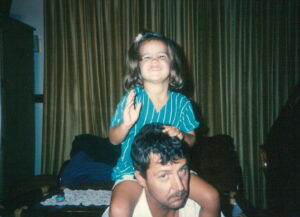What To Say and What Not To Say To A Parent Who Has Lost A Child
Whether sudden or expected, losing a child is uniquely profound and devastating. Some even call it the ‘hardest grief’. Studies continue to show that the greatest — and most enduring — trauma a parent can go through in life is the death of their child.
Death in childhood is rare now. Kids aren’t suppose to die before their parents. With modern medicine and technology, most children are naturally expected to grow up, become an adult and outlive their parents. Parents nurture and raise their kids with the hopes that they reach their fullest potential in the future.
So when a child dies, it is life-altering and earth-shattering. It feels like a betrayal and a violation of the natural order of life. The event can feel impossible to accept, make sense of and find meaning in. This makes the grief of bereaved parents even more painful and deeply isolating.
This post aims to shed light on the experiences of bereaved parents and offer ideas for anyone looking to support them in their grief and loss journey.
The Grief Journey of a Bereaved Parent
Grief is not a linear process with a clear endpoint for anyone. And still, many wonder if parents who’ve lost a child ever recover from their tragedy and overcome their grief.
Studies tell us that up to 94% of parents carry their grief from the loss of their child for the rest of their lives.
The grief of a bereaved parent is persistent. It is an ongoing journey of remembering their child and holding on their every memory of them while simultaneously learning to accept and live with an irreplaceable void in their life.
Common experiences of a bereaved parent include:
- Intense emotions: Profound sadness, anger, guilt, and even physical pain.
- Identity crisis: Questioning one’s role as a parent.
- Strained relationships: Difficulties connecting with others, including partners.
- Triggers: Birthdays, holidays, and milestones can reignite intense grief.
Supporting Bereaved Parents
If you know someone who has lost a child, here are some ways to offer support and let them know you care:
- Listen. Allow them to express their feelings freely and openly without judgment.
- Remember their child. Say their child’s name and share memories.
- Be patient. Grief has no timeline. Continue offering support in the long-term.
- Offer practical help. Help with daily tasks and errands can go a long way.
- Respect their grieving process. Avoid platitudes or pressure to ‘move on’.
What Not To Say When Someone Loses a Child
- “They’re in a better place now.”
- “At least you have other children.”
- “Everything happens for a reason.”
- “I know how you feel.” (unless you’ve also lost a child)
- “You need to be strong.”
- “It’s time to move on.”
- “At least they didn’t suffer.”
- “You can always have another child.”
- “God needed another angel.”
- “Look on the bright side…”
What To Say When Someone Loses a Child
- “I’m here for you.”
- “I’m so sorry for your loss.”
- “It’s okay to not be okay.”
- “I’m thinking of you.”
- “[Child’s name] was so loved.”
- “They will always be remembered.”
- “There are no words, but I’m listening if you want to talk.”
- “What do you need right now?”
- “I remember when [child’s name]…” (share a positive memory)
- “Take all the time you need to grieve.”
Supporting Bereaved Parents By Offering Support To Their Surviving Children
When a family loses a child, grief is experienced by everyone in the family, including siblings.
It can be difficult for grieving parents to fully support their children while they are also going through their own grief. So offering some support to the surviving children can be very helpful.
Surviving children may experience the following:
- Complicated emotions: Sadness for their lost sibling, guilt for surviving, and fear of losing other family members.
- Changes in family dynamics: Shifting roles and parental attention.
- Difficulty expressing grief: They may hide their feelings to protect their parents.
Here are 5 ways to support surviving children through their grief journey:
- Open communication: Encourage honest conversations about feelings and memories.
- Maintain routines: Provide stability and security during a tumultuous time.
- Individual attention: Ensure each child feels valued and supported.
- Age-appropriate explanations: Discuss death and loss in ways they can understand.
- Professional support: Consider grief counseling or support groups for children.
Bereaved Parents Awareness Month is recognized every year in July.
Established in 2020 by A Child of Mine, National Bereaved Parents Day on July 3 fills a vital gap in recognizing all bereaved parents who have lost a child of any age. This day serves as a reminder to offer support, acknowledge bereaved parents’ ongoing journey, and honor the children they’ve lost.
It’s a call to action to talk about child loss and offer compassion to those who need it most.
No parent should have to experience this loss, yet many do. Today, we recognize their strength, resilience, and the unbreakable bond they share with their child. Whether their loss was recent or years ago, their journey matters.
Comfort Zone Camp’s mission is to empower the lives of grieving children to fully realize their capacity to heal, grow and lead more fulfilling lives.
To register a child to attend camp (always for free), you can fill out a camper application here. To get involved, register today to volunteer at one of our upcoming camps and/or join the Giving Zone and sponsor a grieving child.








